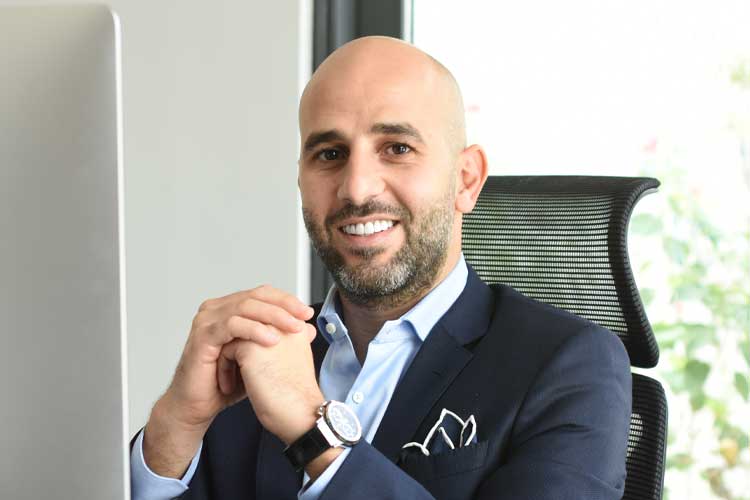

Fadi Nwilati, CEO, of Kaizen Asset Management gives an insight into why Asset Managers need to develop a strategy to work towards their Net-Zero target
November 28, 2022 | Megha S Anthony | UAE | Asset Management

The recently concluded COP 27 held at Sharm el-Sheikh, Egypt, witnessed the announcements of important built environment actions and initiatives. Many countries, including the UAE, have begun to divest from carbon-intensive assets. One has seen a real shift in the real estate management universe from climate talk to climate action!
Megha S Anthony, Senior Editor, REM Times talks to Fadi Nwilati, CEO, of Kaizen Asset Management on why Asset Managers need to develop a strategy to work towards their Net-Zero target. Having been supporting and pursuing the net zero goals, Fadi also gives us an insight into the key lessons he picked up when he embarked on his decarbonisation journey.
Excerpts from the interview:
Asset managers have a duty toward achieving net zero goals. Globally, the real estate industry contributes approximately 35% of emissions. While that is significant, it is even more significant in the UAE with buildings contributing over double that percentage in carbon emissions. The UAE cannot achieve its net zero targets without the leadership, initiative, and dedication of asset managers to reduce emissions. In the past, reducing energy consumption was considered a value add service or contribution from property and asset managers. Today, it has to become core to the business model, processes, and approach of asset managers. Asset managers who succeed at making sustainability at the core of their operations will be able to lead the industry in the future. More importantly, those who contribute to reducing emissions are the heroes of today and tomorrow, helping to save our planet from further climate impact. I hope that the natural disasters of 2022 were a wake-up call to the industry, that we need to do more, that we can do more, and that we must do it faster to achieve net zero targets.
Existing buildings are less carbon efficient than newer buildings, and simultaneously, they are also the most challenging. The solutions to transform existing buildings into more sustainable properties are known; yet, the main challenge I see is the lack of successful business models that regulators, asset managers, and property owners can take up to improve the sustainability of properties. I analyze success factors in other parts of the world that are having faster traction in reducing carbon footprint; I split those into 2 categories, incentives, and enforceability. In some countries, forcing new regulations that force the reduction of carbon footprint works, whereas in other parts, incentivizing landlords and asset managers brings the fastest results.
I learnt a lot of insights during my journey of reducing my carbon footprint.
1- Resistance to change: Human nature resists change. I see a lot of property managers, service providers, and building occupants resisting changing habits that can reduce carbon footprints. Conflicts arise as a result of that, and many initiatives become short-lived. We have had initiatives to reduce the carbon footprint that ended up creating disputes between those residents who are on board with the changes and those who are not. Some examples include increasing the temperature in common areas or turning off certain lights.
2- Willingness to change: For many residents, property managers, and service providers, reducing their carbon footprint has not become the main priority for them yet, and therefore, you see very little initiative. To my surprise, very few service provider personnel and industry professionals are on the ground care
3- The problem is expensive to solve in many cases: I summarize it with one question example. How do you convince a landlord who already paid for a chiller that has 50% overcapacity in a fairly new building, and hence, is wasting energy, that they need to buy a new machine and replace the old one, loosing hundreds of thousands along the way? A lot of buildings have been over-designed when it comes to cooling, in most cases because the engineers who designed the project were not too sure of their analysis and did not want to take accountability, and hence, decided to increase the capacity to be on the safe side. In most cases that relate to design, the solutions are very expensive as they require major re-purchases of new assets and retrofitting of buildings and systems.
To summarize, I believe asset managers should be relentless in the pursuit of their net zero goals, should think outside of the box for solutions, and must engage more closely with regulators and property owners to find effective solutions. We must be relentless, we must continue to push through all the challenges. We owe it to our planet, our customers, and our families.